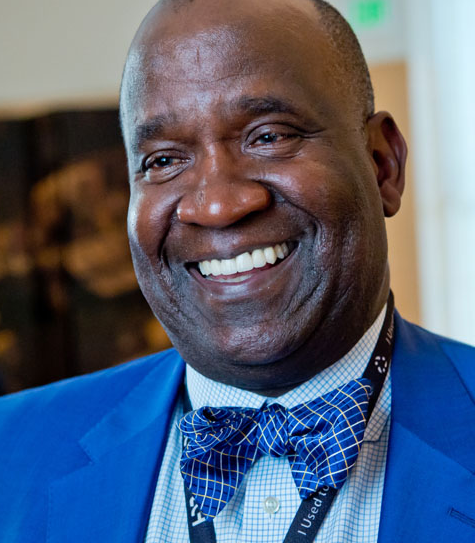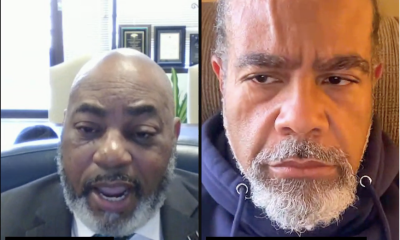Economics
San Francisco Releases Report on Local Construction Hiring

San Francisco´s Office of Economic and Workforce Development (OEWD) released its sixth annual report on the Mandatory Local Hiring Policy for Construction.
The annual report, submitted to the Board of Supervisors, shows the outcomes of the local workforce initiative since its signing into law in 2011. The Local Hiring Policy for Construction was established to ensure contractors are employing local residents on public works projects.
“Connecting San Franciscans with local construction jobs gives all our residents the chance to enjoy the prosperity of this city,” said Mayor Ed Lee. “We are proud that the individuals who built their lives and raised their families here in this city are now helping to build the future of San Francisco.”
“One of the priorities of the Office of Economic and Workforce Development is to create more opportunities in the private sector for San Franciscans. This policy allows the city to connect local residents to the construction market in partnerships with our local unions—helping to put our residents in good-paying, sustainable jobs,” said Michael Carr, director of Workforce with the Office of Economic and Workforce Development.
The 2016-17 Local Hire Report includes hours performed by construction workers on city construction and capital projects led by the Port of San Francisco, Public Works, San Francisco Municipal Transportation Agency (SFMTA), San Francisco Public Utilities Commission, San Francisco International Airport (SFO), and Recreation and Parks. Highlights include:
- 456 capital projects totaling more than 8.4 million hours were subject to the Local Hire Policy;
- 38 percent or more than 3.1 million hours of construction were contributed by local residents; and
- 57 percent apprenticeship participation
Local residents represent a range of trades in this report including: asbestos removal workers, carpenters, cement mason drywall installer/latherers, electricians, glaziers, iron workers, laborers, operating engineers, painters, pile drivers, plaster tenders, plasterers, plumbers, roofers, sheet metal workers, and many others.
“I grew up in San Francisco so I have seen a lot of changes in the city. Now I’m proud to say that I’m building things that others can also see. It means a lot that there are programs to help people who grew up in this city to stay working and living here,” said Meg-Ann Pryor, Operating Engineer with Local 3 and CityBuild Academy graduate.
The annual report includes demographic and other data indicates that the San Francisco construction workforce maintains high levels of diversity according to available data.
The hours performed by local residents represent capital improvements projects including the repair of water and sewer lines, renovation of parks and recreational centers, repaved streets, rehabilitation of the city’s infrastructure and buildings, and the construction of new housing citywide.
A six-year assessment of the policy’s impact and the availability of qualified workers led the Board of Supervisors to set a 30 percent local hire mandate within the San Francisco construction market. OEWD will continue to respond to the changing workforce needs of the construction industry and ensure that the Local Hiring Policy for Construction benefits local workers and the San Francisco economy as a whole.
The full report is available at: www.oewd.org/local-hi
Activism
Oakland Post: Week of December 31, 2025 – January 6, 2026
The printed Weekly Edition of the Oakland Post: Week of – December 31, 2025 – January 6, 2026

To enlarge your view of this issue, use the slider, magnifying glass icon or full page icon in the lower right corner of the browser window.
Activism
Oakland Post: Week of December 24 – 30, 2025
The printed Weekly Edition of the Oakland Post: Week of – December 24 – 30, 2025

To enlarge your view of this issue, use the slider, magnifying glass icon or full page icon in the lower right corner of the browser window.
Activism
Oakland Post: Week of December 17 – 23, 2025
The printed Weekly Edition of the Oakland Post: Week of – December 17 – 23, 2025

To enlarge your view of this issue, use the slider, magnifying glass icon or full page icon in the lower right corner of the browser window.
-

 Bay Area3 weeks ago
Bay Area3 weeks agoPost Salon to Discuss Proposal to Bring Costco to Oakland Community meeting to be held at City Hall, Thursday, Dec. 18
-

 Activism3 weeks ago
Activism3 weeks agoMayor Lee, City Leaders Announce $334 Million Bond Sale for Affordable Housing, Roads, Park Renovations, Libraries and Senior Centers
-

 Activism3 weeks ago
Activism3 weeks agoOakland Post: Week of December 10 – 16, 2025
-

 Activism3 weeks ago
Activism3 weeks agoOakland School Board Grapples with Potential $100 Million Shortfall Next Year
-

 Arts and Culture3 weeks ago
Arts and Culture3 weeks agoFayeth Gardens Holds 3rd Annual Kwanzaa Celebration at Hayward City Hall on Dec. 28
-

 Activism3 weeks ago
Activism3 weeks ago2025 in Review: Seven Questions for Black Women’s Think Tank Founder Kellie Todd Griffin
-

 Advice3 weeks ago
Advice3 weeks agoCOMMENTARY: If You Don’t Want Your ‘Black Card’ Revoked, Watch What You Bring to Holiday Dinners
-

 Activism3 weeks ago
Activism3 weeks agoAnn Lowe: The Quiet Genius of American Couture
























































